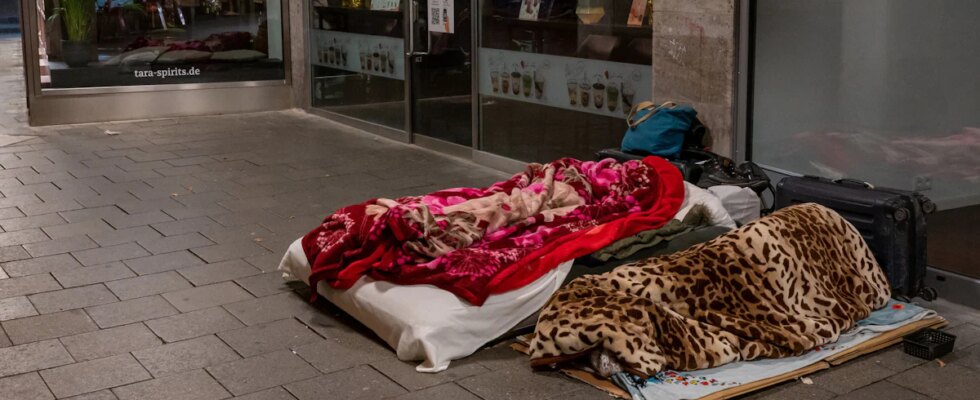Homeless assistance in Bavaria is facing increasing demand. “We see sheer need,” says Michael Thiergärtner of the Würzburg Christophorus Society, according to a statement. The short-term overnight accommodation (KZÜ) is at its capacity limit. Every day he sees people living from hand to mouth. Every little extra expense plunges them into despair. People have no social safety net. Most are addicted.
In addition, the tone is becoming harsher. The ongoing crisis is not only making people desperate, but also irritable, says Thiergärtner. Bad remarks are being made more frequently in counseling sessions. Mental illnesses are becoming more severe. This means that men who come to stay overnight are far more unpredictable than they were ten years ago. Migrants in particular are increasingly seeking help. “People who left their country of birth almost ten years ago are increasingly knocking on the door,” says Thiergärtner. After the asylum process, they tried to integrate into the job market and get an apartment – and failed.
“We also perceive an increased need for help,” confirms the Bavarian regional association of Caritas. Both in terms of the financial hardship and the psychological stress on the people being cared for. However, a generally rougher or more aggressive tone has not been observed so far.
According to the coordination office of the homeless assistance service in southern Bavaria, the number of homeless people in Bavaria has almost tripled since 2014. “The figures are indeed worrying and provide a clear indication that the Federal Republic and Bavaria still have a long way to go in terms of housing policy,” says the current annual report of the homeless assistance service. In April, the federal government pledged to offer homeless people appropriate and affordable housing by 2030 in an action plan.
People who do not own or rent their own home are considered homeless – this also includes those who are staying with friends, for example. People who have no permanent residence or accommodation and therefore usually spend the night in public places are considered homeless. The Christophorus Society is an ecumenical contact point for homeless, ex-convict and indebted citizens.

